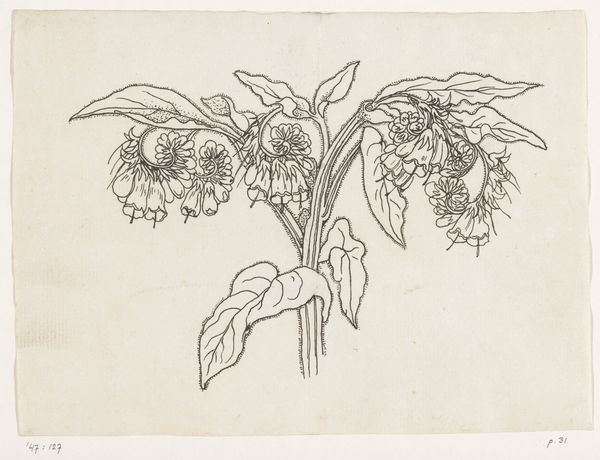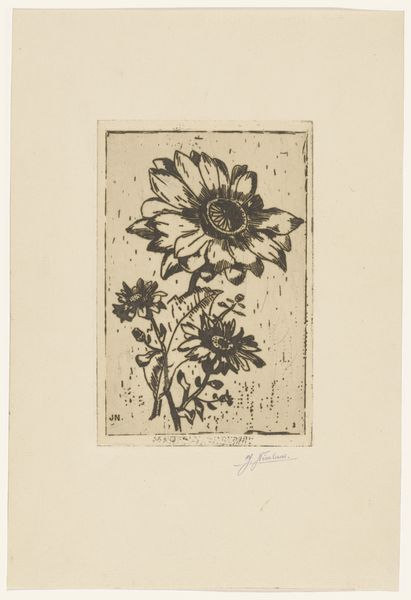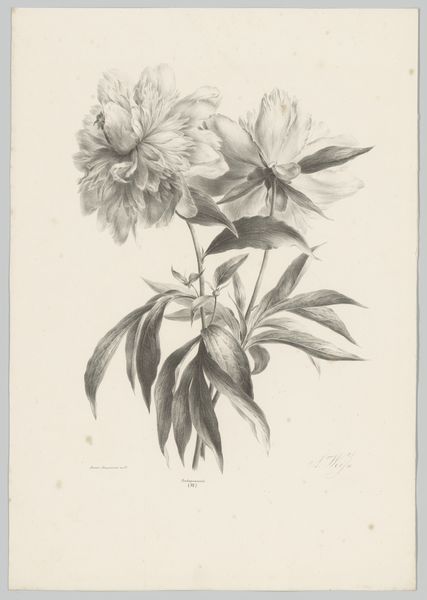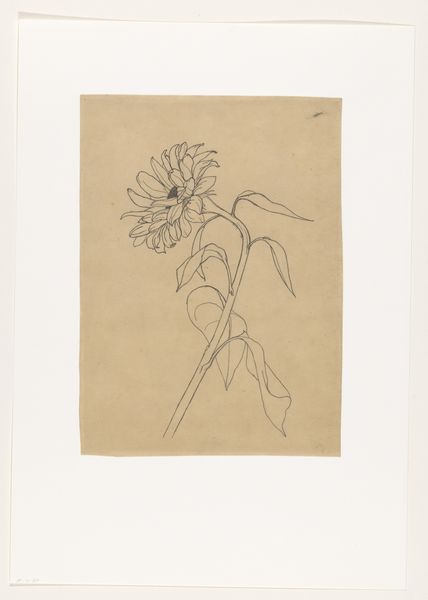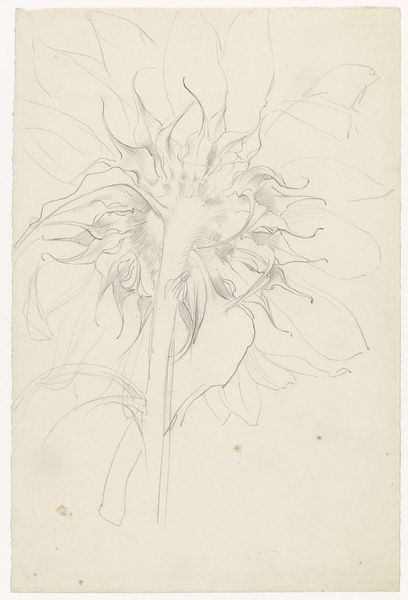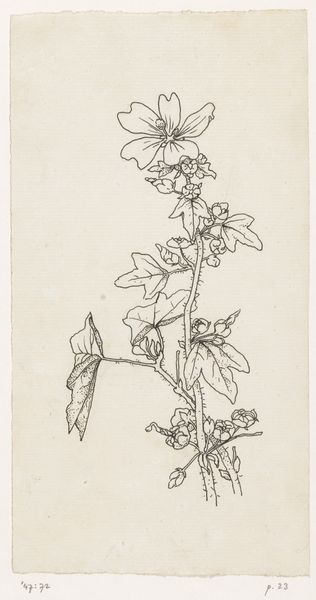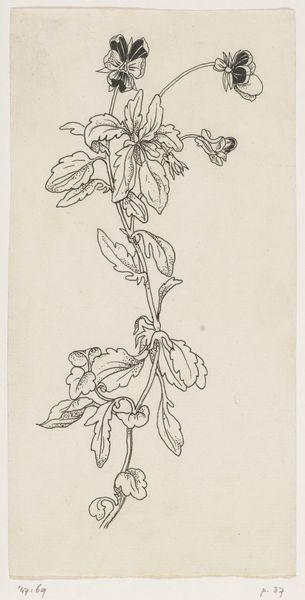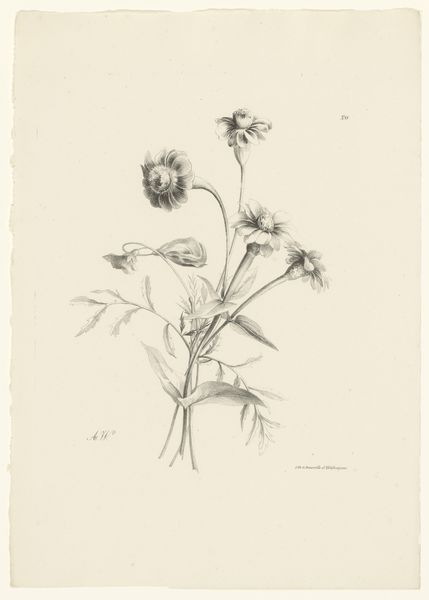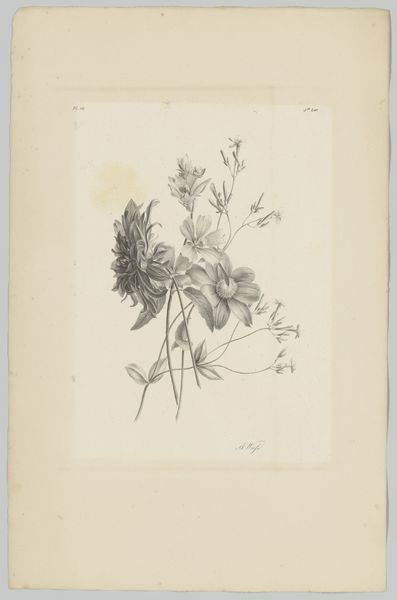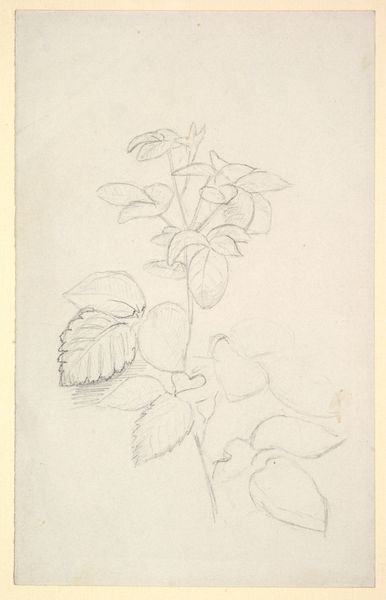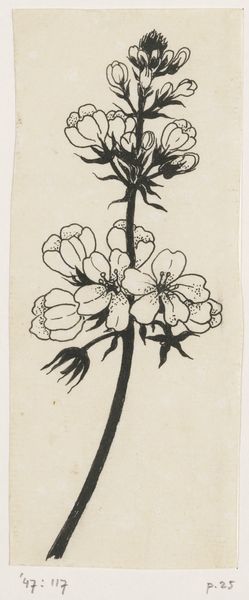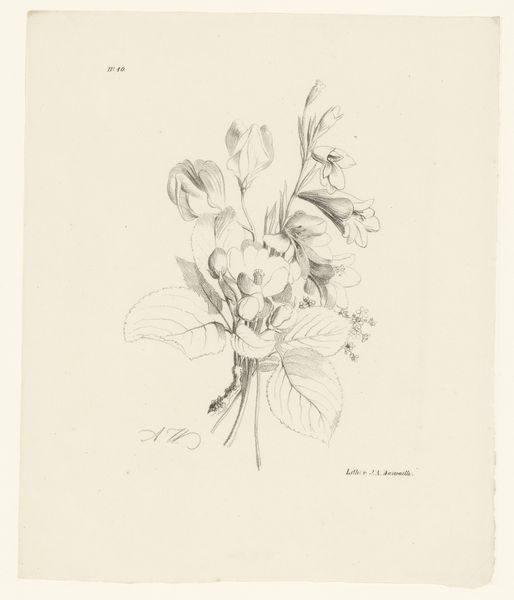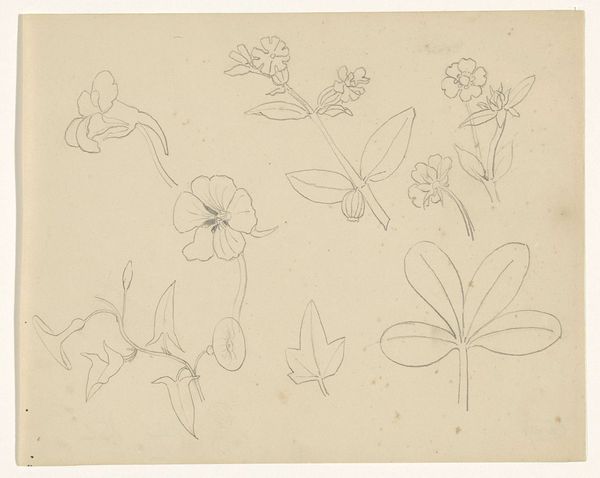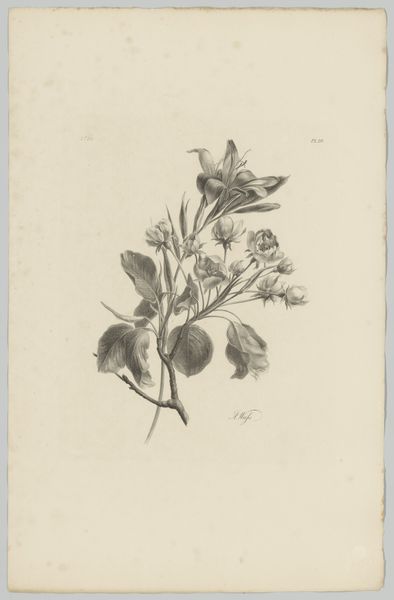
drawing, ink, pen
#
drawing
#
pen sketch
#
ink
#
line
#
pen
#
academic-art
Dimensions: height 147 mm, width 135 mm
Copyright: Rijks Museum: Open Domain
Curator: Before us is a work entitled "Kerstroos" ("Christmas Rose"), crafted between 1892 and 1940 by Henri Verstijnen. Executed in ink with both pen and drawing techniques, it’s a compelling piece to examine. Editor: My initial impression is one of starkness, despite the floral subject. The limited palette—or lack thereof—emphasizes the line work, giving it a very direct, almost pedagogical feel. It's precise and analytical. Curator: Precisely! And I find that rigidity rather intriguing. When placed within its historical context, the meticulous rendering can be interpreted as a response to shifting cultural values of the time. The emphasis on detail perhaps serving as a counter-narrative to… Editor: Hold on. I see something different in that precision. Look at how each line contributes to a sense of contained energy. To me, the starkness creates a space for deeper reflection. The Christmas rose itself carries immense symbolic weight, doesn't it? It’s a flower that blooms in winter. Curator: Absolutely, the flower’s association with resilience and hope are indeed pertinent readings. However, thinking through the lens of post-colonial theory, it also invokes the legacy of the Dutch botanists and their cataloging of the natural world... Editor: Yes, and even beyond that academic aspect, think of the religious symbolism tied to the Christmas Rose blooming around the birth of Christ. Verstijnen invites us into that space of hope amid barrenness—a powerful and deeply resonant message through universally recognized symbols. Curator: It's definitely interesting how Verstijnen uses this particular subject, given the broader context of botany being increasingly wielded in social narratives related to racial superiority. But there is a tension, of course, between any attempt to universalize beauty while at the same time the Western, especially European perspective becomes more dominant… Editor: Indeed. But perhaps that tension is exactly what Verstijnen intended to convey. This drawing becomes more than just an observation; it’s a statement. Curator: Precisely, his selection of materials makes his point resonate in the cultural climate in a very potent, insightful way. It urges the viewer to understand those interrelations… Editor: This makes one think of how cultural memory persists and adapts across generations, giving symbols new relevance depending on the societal and historical framework. Thank you for highlighting these important perspectives!
Comments
No comments
Be the first to comment and join the conversation on the ultimate creative platform.
